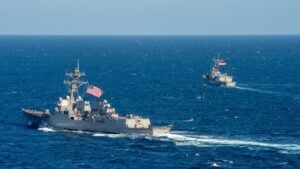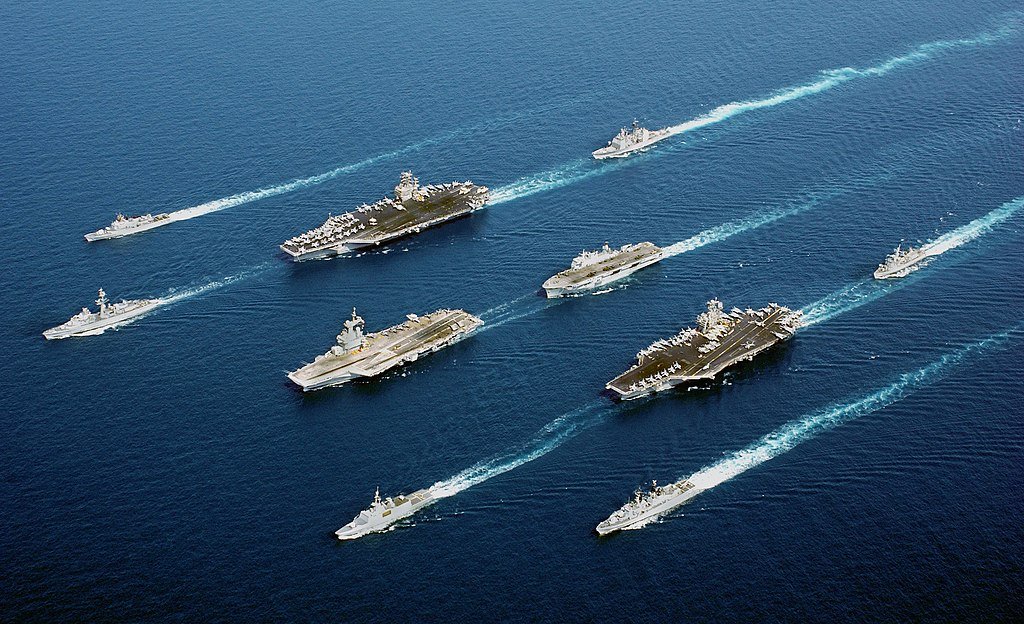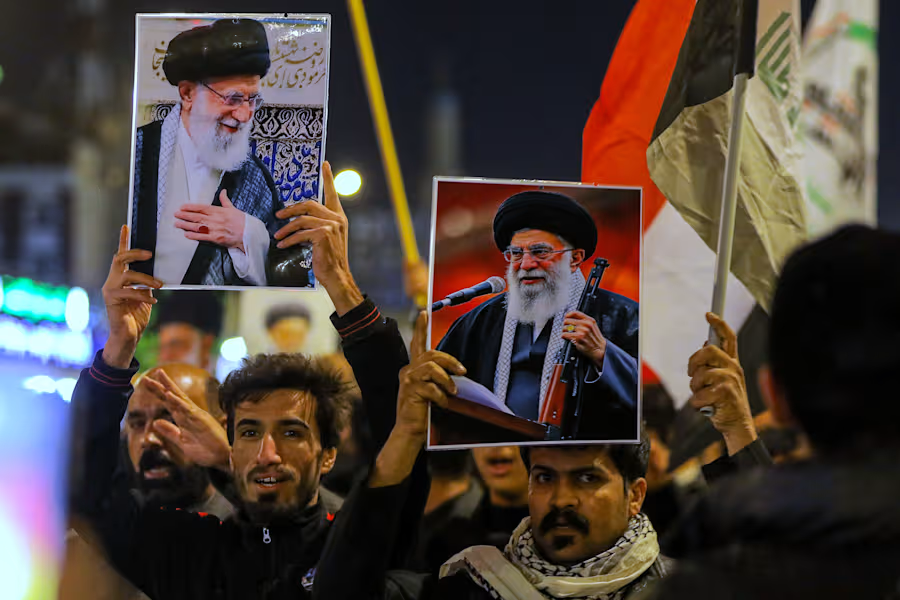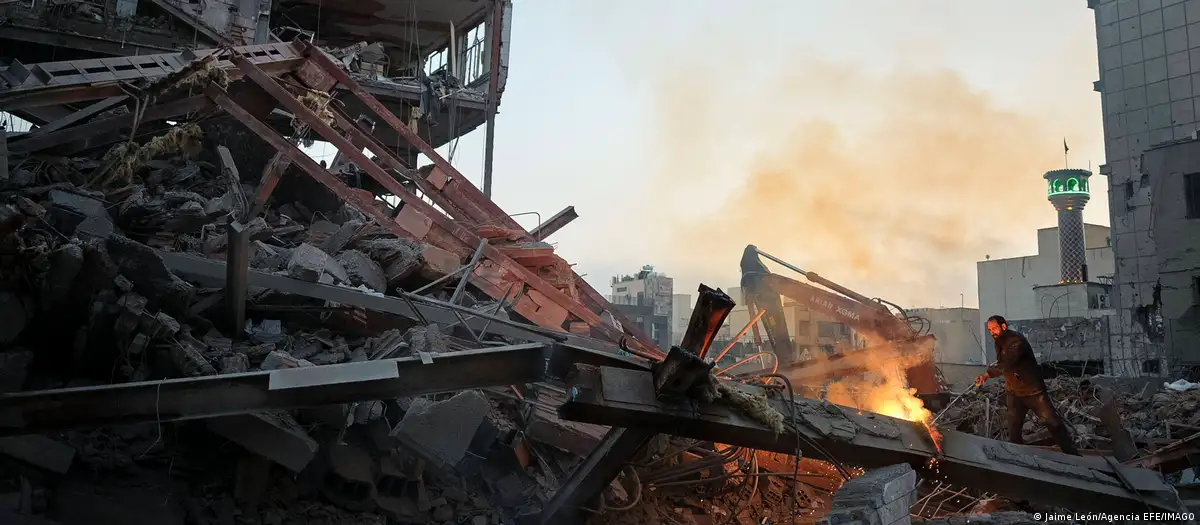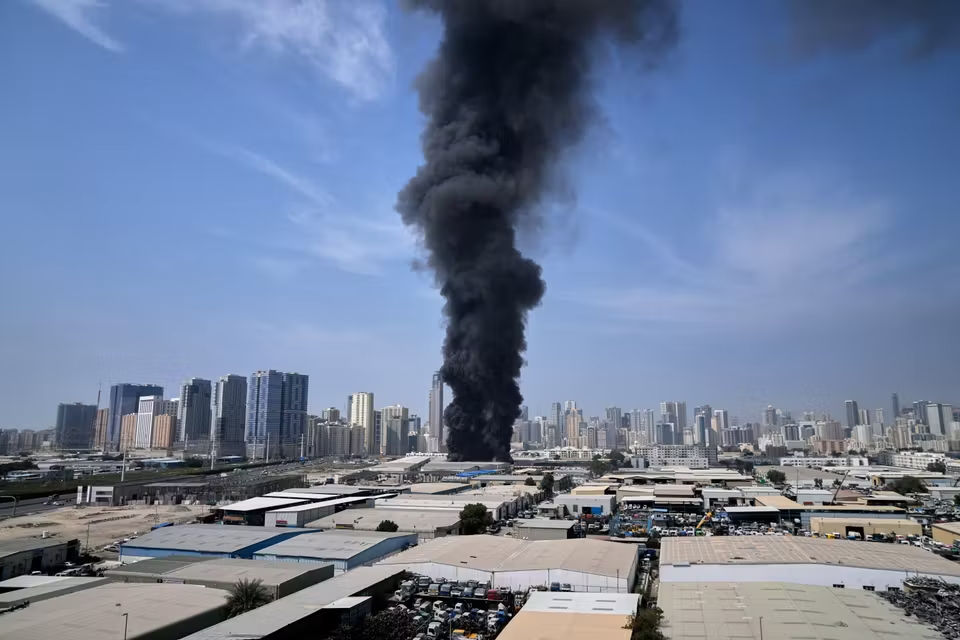Iran has issued a stern warning of missile attacks targeting the United States naval fleet, escalating tensions between the two countries amid ongoing conflicts in the Middle East.
The threat follows recent attacks on Iranian nuclear sites in Natanz and Isfahan. Iran’s Supreme Leader Ayatollah Ali Khamenei’s close advisor has called for an end to US missile strikes on Iranian vessels and infrastructure. This warning concerns a vital global oil transport route near the Strait of Hormuz, a key waterway for international oil shipments.
Hossein Shariatmadari, editor-in-chief of the Kayhan newspaper and a trusted voice within Iran’s conservative circle, warned that Iran will retaliate after US strikes on its nuclear facilities. Known as a hardliner with close ties to the Supreme Leader, Shariatmadari said there will be no hesitation in launching missile attacks on the US naval forces in the Persian Gulf region, especially near Bahrain.
He also claimed that naval vessels from the US, Britain, Germany, and France had previously been observed by Iranian forces in connection with the recent US strikes on Iran’s nuclear sites. This shows the high alert and preparation for a possible escalation from Tehran.
Meanwhile, Iranian officials confirmed that missile attacks struck nuclear facilities in Natanz and Isfahan. Akbar Salehi, deputy governor responsible for security in Isfahan, reported explosions near key nuclear sites in both cities. This marks a significant escalation in the conflict surrounding Iran’s nuclear program.
Earlier, former US President Donald Trump had publicly confirmed the successful strikes on Iranian nuclear installations. A US official also revealed that the operations involved B-2 stealth bombers, indicating the high level of military capability used in the attacks.
Iran’s leadership views these strikes as an act of aggression. They have now vowed to respond with force. The situation raises fears of further conflict and instability in the region, especially around the Persian Gulf, a critical area for global energy supplies.
The international community watches closely as Iran signals its readiness to retaliate against the US naval forces. These developments may affect global oil markets and heighten risks to shipping lanes.
The ongoing tension underlines the fragile security balance in the Middle East. With both sides showing signs of escalating military actions, the prospects for peace appear uncertain.

